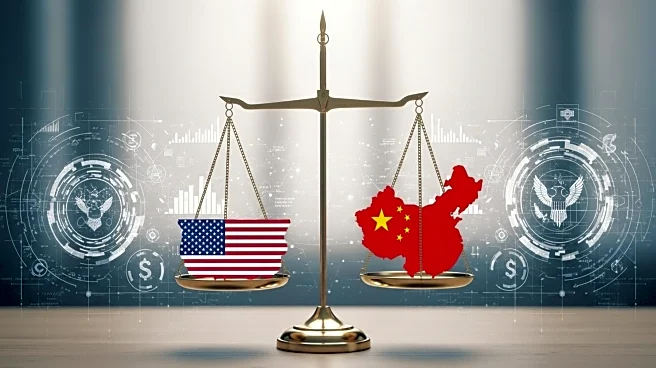What is the story about?
What's Happening?
Officials from the United States and China are set to meet in Madrid for their fourth round of negotiations aimed at extending a truce in the ongoing trade war initiated under President Trump. The trade conflict, which has significantly impacted the global economy, saw a series of temporary truces that have helped stabilize relations. However, the current pause on U.S. tariffs on Chinese imports is due to expire in November, prompting both nations to seek a resolution to avoid further economic strain. The U.S. delegation, led by Treasury Secretary Scott Bessent and U.S. Trade Representative Jamieson Greer, will engage with China's Vice Premier for Economic Policy, He Lifeng. The discussions will cover national security, economic and trade issues, including the controversial TikTok app and efforts to combat money laundering networks.
Why It's Important?
The outcome of these talks holds significant implications for the global economy, particularly in terms of trade stability and inflation control. President Trump's tariffs have contributed to inflationary pressures, and the Federal Reserve is expected to cut interest rates to stimulate economic growth. A successful negotiation could ease these pressures and foster a more stable economic environment. Additionally, the discussions on TikTok and export controls highlight ongoing national security concerns, which could influence future regulatory measures. Both countries stand to benefit from a resolution, as it would mitigate economic uncertainties and potentially lead to more cooperative economic relations.
What's Next?
As the talks progress, stakeholders will closely monitor any agreements or extensions of the current tariff truce. The potential for easing tariffs could lead to positive reactions from global markets and businesses reliant on U.S.-China trade. However, failure to reach an agreement may result in renewed economic tensions and further tariff implementations. The focus on TikTok and export controls suggests that technology and data security will remain pivotal issues in U.S.-China relations, potentially affecting future policy decisions and international tech collaborations.















